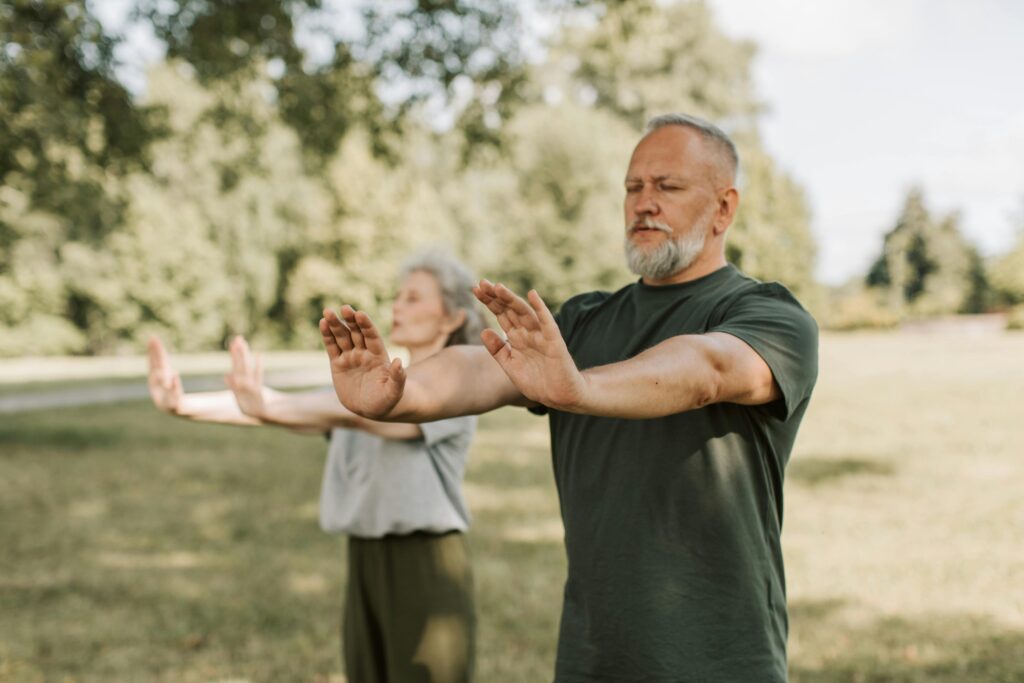Is Tai Chi Good for Your Brain? New Study says Yes!
- October 17, 2024

Can a structured Tai Chi program help your brain? Mild cognitive impairment (MCI) poses a significant challenge for older adults, affecting both memory and dual-task abilities. Research suggests that a combined physical and cognitive intervention may offer protection against the risk of dementia. A recent study set out to evaluate the effectiveness of cognitively enhanced Tai Ji Quan compared to standard Tai Ji Quan and simple stretching exercises in improving cognition and movement in older adults.
In a randomized, 3-group trial involving 318 participants, adults with mild cognitive impairment or self-reported memory issues took part in 24 weeks of home-based exercises delivered via videoconferencing. Participants were divided into three groups: those practicing cognitively enhanced Tai Ji Quan, those performing standard Tai Ji Quan, and those engaging in stretching exercises. The study measured improvements in cognitive function using the Montreal Cognitive Assessment (MoCA) and assessed participants’ ability to walk while performing a secondary task, known as dual-task walking costs.
The results were clear: cognitively enhanced Tai Ji Quan was significantly more effective at improving global cognition and reducing dual-task walking costs than both standard Tai Ji Quan and stretching. Participants in the cognitively enriched group showed a 1.5-point improvement in their MoCA scores over standard Tai Ji Quan and a 2.8-point improvement over stretching. Similarly, their dual-task walking performance improved by 9.9% compared to standard Tai Ji Quan and by 22% over stretching exercises.
These benefits were sustained for up to 48 weeks, demonstrating that this approach holds promise for long-term cognitive and physical improvements in older adults with MCI. The study highlights the potential for integrated therapies like cognitively enhanced Tai Ji Quan to improve quality of life and reduce dementia risk.
Click Here to find out more info about MAC’s Tai Ji Quan program!
